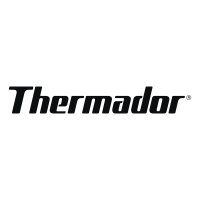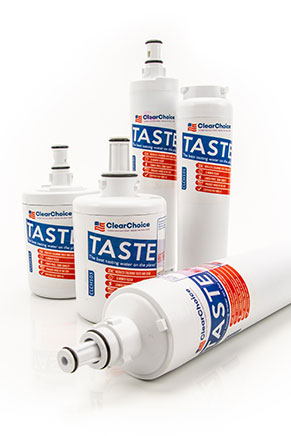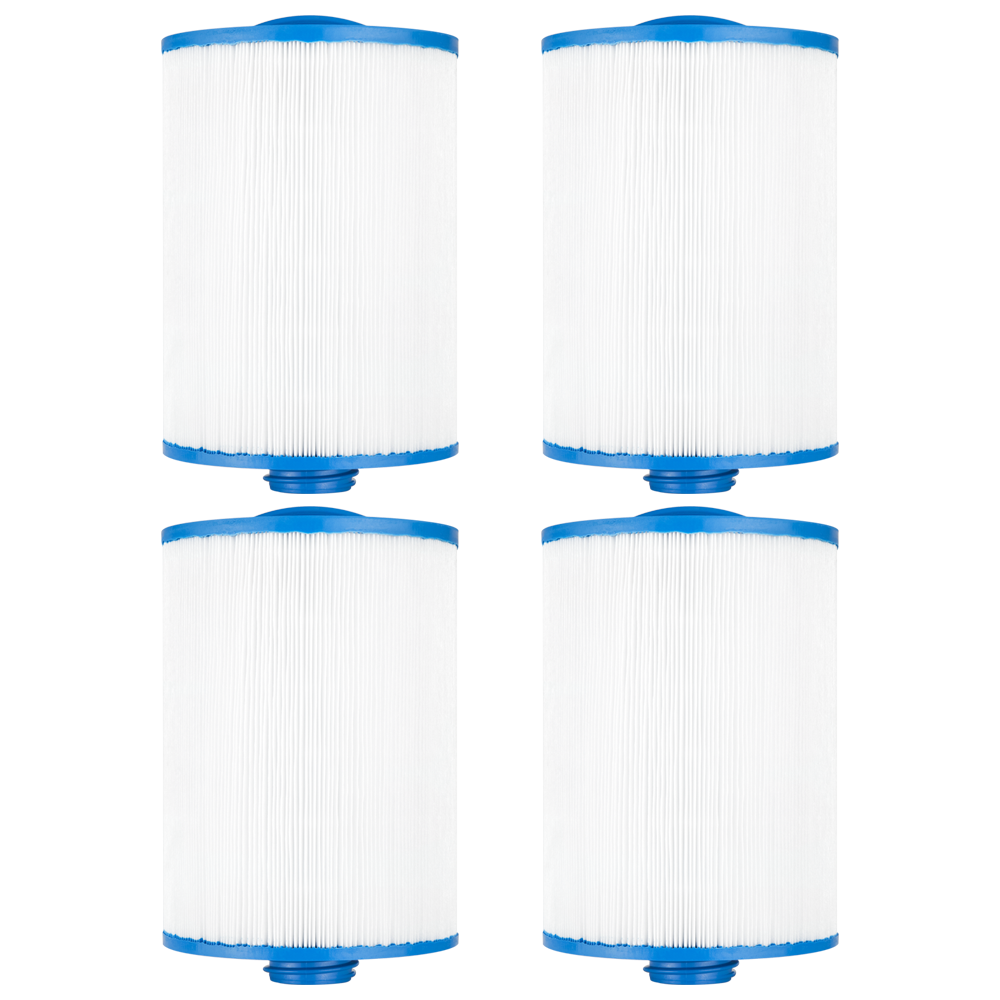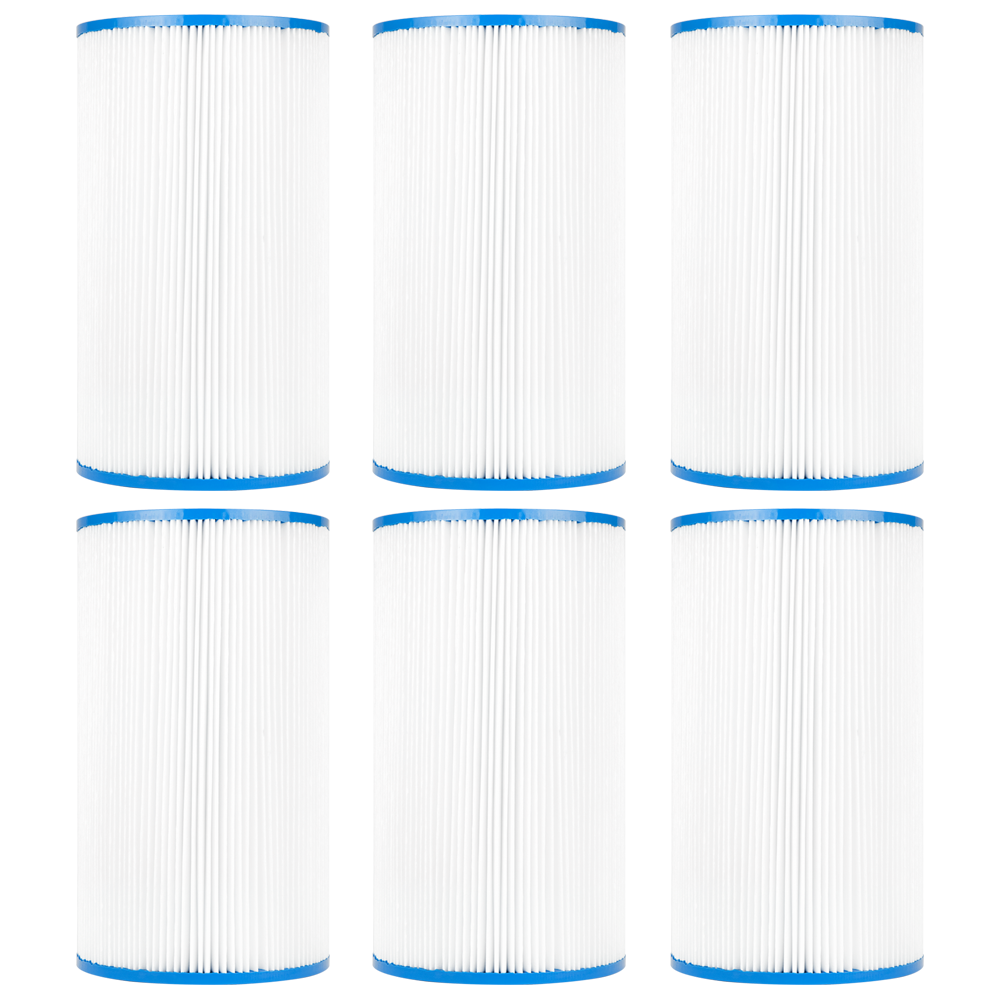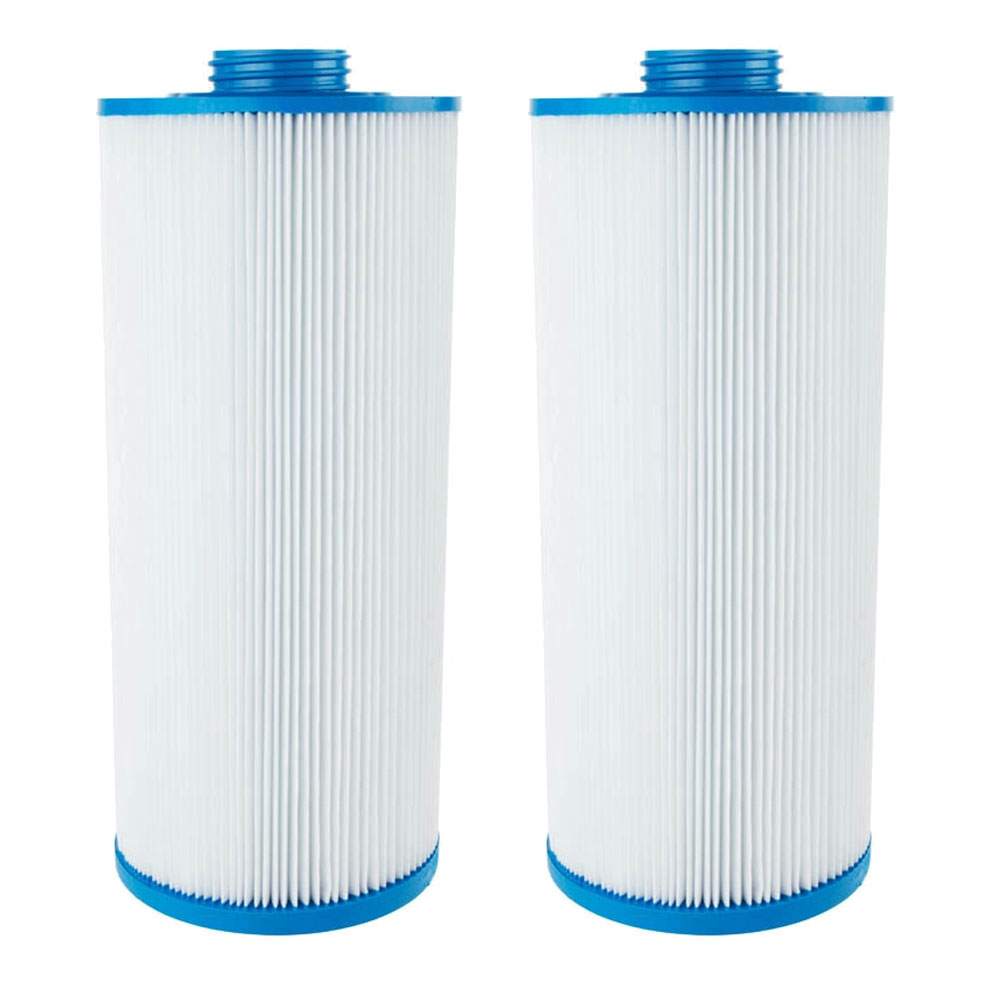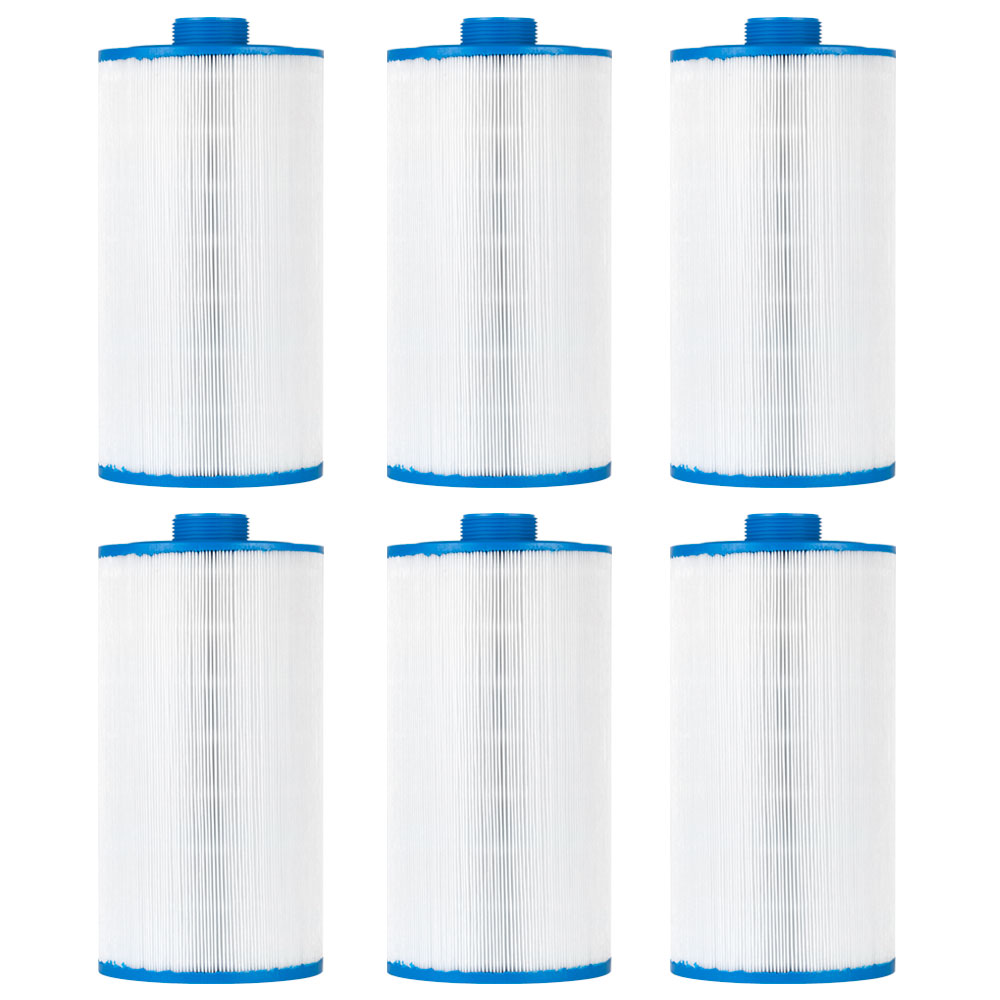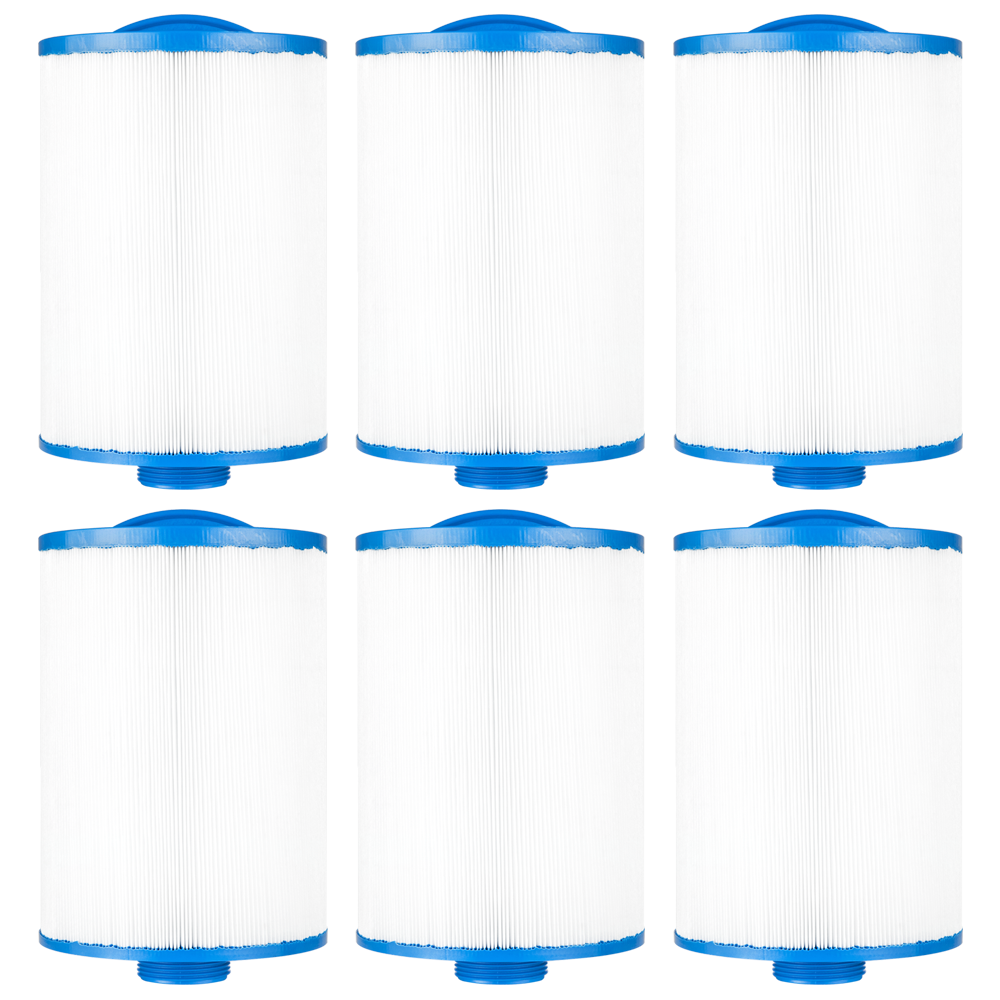Pool & Spa Filters
Our pool and spa filters are made with the highest quality materials and state-of-the-art construction methods.
- Even pleat spacing ensures consistent particle capture over time – preventing collapse under pump pressure
- Engineered full flow cores provide great performance and hold up to the toughest applications
- Specialized media is the most commonly used by the leading manufacturers in the pool and spa world
Search by Pool Manufacturer
Search by Spa Manufacturer
By Reference
By Size
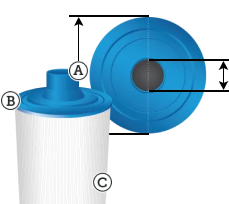
What Our Customers Have to Say
Frequently Asked Questions
How do I know when it's time to clean my pool cartridge filter?
For pools, most cartridge filter systems include a pressure gauge on the top of the filter tank. When the cartridge has become loaded with debris, the pressure in the tank rises. When the pressure gauge reads about ten pounds-per-square-inch (PSI) over normal, it's time to clean the cartridge or cartridges.
How do I know when it's time to clean the filter in my hot tub or spa?
It's recommended to clean and inspect your hot tub / spa filters every 2 weeks. At 2 weeks, give the filter a quick rinse. At 3 months perform a more thorough cleaning - agitating the filter in a bucket of water with your favorite cleaning solution and allow it to soak overnight. Each year purchase new filters and repeat the processes above.
Can pool and spa filters be washed?
Yes, the media in most pool filters is constructed from fabric and is washable. Once removed, pool and spa filters can be rinsed with a garden hose. We sell a cleaning tool which makes this process much easier. There is a point where the filters should be replaced. When you see signs of frayed fabric or damage - it's best to purchase new filters.
What's the difference between a sand and cartridge filter?
Sand filters can remove particles down to 20-40 microns in size. We do not sell sand filters. Rather, we sell replacement cartridge filters, which are more efficient than sand filters - removing particles down to 10-20 microns in size. Cartridge filter systems are generally easier to service than sand filter systems.
How do I know what pool or spa filter to buy?
Identifying the correct pool or spa filter can be tricky - as there are often no identifying marks on the filter itself. To find your filter, you can type the model number of your filter system into the search box on our site. You can also enter the filer dimensions (diameter and length) in our filter finder utility.
What Is the Best Type of Filter for a Pool?
When it comes to determining the best swimming pool filters for your swimming pool, homeowners are often presented with three main options: sand, cartridge, and Diatomaceous Earth (DE) filters. Each filter type comes with its own set of advantages and drawbacks, and selecting the right one largely depends on your specific needs and pool usage.
Comparison of Different Filter Types
Sand filters are often the most affordable and require less frequent maintenance. They work by filtering water through a bed of sand to trap debris. However, they tend to be less effective at capturing very small particles compared to the other types of filters.
A notable component in some pool filters is the CMP SP0410X502S Slide Backwash Valve, which is known for its heavy-duty build, ensuring enhanced durability and reliability in filtration systems.
Cartridge filters, on the other hand, use a cylindrical filter cartridge made of paper-like material. They are generally more effective than sand filters at catching smaller debris and require less water for cleaning. Maintenance is fairly easy and consists mainly of hosing off the filter to remove trapped dirt and particles.
DE filters offer the highest level of filtration, capturing particles as small as 2-5 microns, thanks to their use of Diatomaceous Earth, which is a powdery substance. They provide premium cleaning ability but can be more complex and costly to maintain.
Pros and Cons of Each Type
The choice between these filters is affected by a range of considerations. Sand filters are praised for their simplicity and durability, making them a perfect choice for larger pools where frequent maintenance is not desirable. However, they may not be as efficient in filtering out fine particles. A backwash valve is essential for sand filters, as it allows for the reversal of water flow to discharge dirty backwash water, maintaining clean and efficient filtration.
Cartridge filters strike a good balance between ease of maintenance and filtration efficiency. They are compact and usually more convenient to handle and clean than sand filters. That being said, replacing the cartridges periodically can be costly.
DE filters are ideal for those prioritizing top-notch water clarity. They remove the finest particles and are excellent for high-traffic pools. However, they require meticulous maintenance and the costs can add up over time. A backwash valve also plays a crucial role in DE filters, ensuring the system remains clean and efficient by discharging dirty backwash water.
Criteria for Determining the Best Filter for Your Pool
The ideal filter depends on several factors, including pool size, frequency of use, budget, and personal preference for maintenance involvement. If your priority is pristine water clarity with high-level filtration, then a DE filter might be your best choice. For an economical and minimal upkeep solution, a sand filter may be the one for you. If you're looking for a happy medium, the cartridge filter offers enhanced filtration that’s easier to maintain.
Ultimately, the best pool filters are those that meet your specific filtration needs while fitting within your budgetary and maintenance preferences.
How Often Should a Pool Filter be Replaced?
When it comes to maintaining a pool filter system, understanding the replacement timeline is essential for optimal performance and cleanliness. The frequency with which you need to replace your pool filter cartridges depends on several factors, including the type of filter you have installed.
Typical Replacement Timelines for Different Filters
On average, swimming pool cartridge filters need replacement every 1-2 years. However, this timeframe can vary depending on usage. For example, pools that are used frequently or are exposed to a lot of debris might require more frequent replacements. Sand filters typically last around 5-7 years before needing a change, while DE (Diatomaceous Earth) filters may last up to 10 years, though the grids inside might need sooner replacement.
Signs Indicating It's Time to Replace a Filter
There are several signs homeowners should be aware of that indicate a filter replacement is necessary. Reduced water clarity, increased pressure on the filter gauge, or a recurring need to clean the filter are indicators that it might be time for a change. Moreover, if maintenance doesn’t improve effectiveness, it could be due for replacement.
Impact of Regular Maintenance on Filter Lifespan
Regular maintenance plays a crucial role in prolonging the lifespan of your pool filter system. Ensuring proper cleaning, such as backwashing sand and DE filters or washing cartridge filters, can adequately maintain functionality and defer the need for immediate replacement. It’s wise to frequently inspect for wear and tear to catch problems early.
By staying mindful of these aspects, homeowners can ensure their pool remains a clean, inviting oasis, enjoying both clarity and cleanliness, which contributes to a longer lifespan for the filter system.
What Is the Lifespan of a Pool Filter?
Understanding the lifespan of your pool filter system is essential for effective pool maintenance and long-term savings. Different types of pool filters have varying lifespans, influenced by factors such as usage, maintenance, and environmental conditions.
Average Lifespan of Various Pool Filters
Typically, pool filters can last several years when properly maintained. Cartridge filters usually have a lifespan of 1 to 3 years, depending on usage frequency and maintenance schedules. Sand filters, on the other hand, can last anywhere from 5 to 7 years before the sand needs replacing. The longevity of Diatomaceous Earth (DE) filters ranges from 2 to 4 years, contingent on whether they are regularly cleaned and backwashed.
Factors Affecting Filter Longevity
The lifespan of a pool filter can be influenced by several factors. Regular maintenance is crucial for extending a filter's life. For instance, ensuring that filters are cleaned and replaced according to manufacturer recommendations can significantly increase their longevity. Environmental factors such as the amount of debris and dirt the pool is exposed to also play a role. Pools located in areas with extensive foliage or dust may require more frequent filter maintenance compared to those in controlled environments.
Best Practices for Extending Filter Life
To maximize the lifespan of your pool filter system, consider following these best practices: adhere to regular cleaning schedules and ensure proper backwashing for sand and DE filters. Additionally, inspect the filter for wear and tear periodically, especially after severe weather conditions or intensive pool use. Using the right size and type of filter for your pool’s size and capacity is also crucial to prevent overworking the system.
Maintaining the pool filter system is ultimately about balancing regular maintenance with effective cleanings and replacements. Adopting these practices will not only extend the life of your pool filter but also ensure a safe, clean swimming environment.
Which Is Better, a Sand or Cartridge Filter?
Performance Comparison Between Sand and Cartridge Filters
When evaluating pool filters, homeowners often wonder whether a sand filter or a cartridge filter is the better option. Each type has its unique advantages and considerations that can significantly impact your pool maintenance approach and overall swimming experience.
Both sand and cartridge filters are compatible with various pool cleaners, enhancing their effectiveness in maintaining pool cleanliness. Choosing the right pool cleaner that works well with your filter type can optimize your pool's maintenance routine.
Sand filters are known for their durability and relatively simple maintenance routine. They function by moving water through a layer of sand that captures debris and impurities. Sand filters are particularly effective at handling a large amount of water quickly, making them a great fit for larger pools with high usage volumes. However, they might not catch finer particles as effectively as cartridge filters.
Cartridge filters, on the other hand, provide superior filtration capabilities by using a paper-like cartridge to trap a greater range of particle sizes. This often means cleaner water with less frequent use of pool cleaning chemicals. However, while offering better filtration, they tend to require more maintenance, including periodic cleaning and replacement.
Cost-Effectiveness and Maintenance Differences
The initial investment and ongoing maintenance costs of sand and cartridge filters play a pivotal role in a homeowner’s decision. Sand filters are generally more low-cost upfront and their maintenance primarily involves backwashing and occasional sand replacement every few years. This makes them appealing to budget-conscious consumers.
In contrast, cartridge filters might have a higher cost of ownership. Regular cleaning of the cartridges with a hose or soaking them in a cleaning solution is necessary to maintain their efficiency. The cartridges themselves will need replacing typically every 1 to 2 years, leading to additional costs.
Recommended Use Cases for Each Type
Considering the pros and cons, the best filter for your pool can vary based on specific needs and preferences. If you prioritize ease of maintenance and have a larger pool, a sand filter might be suitable. For smaller pools where water clarity is critical and regular maintenance isn't an issue, a cartridge filter could be the better option.
Ultimately, the decision should align with both your lifestyle and maintenance comfort level. At DiscountFilters.com, we offer a variety of both sand and cartridge filters to meet diverse needs and preferences, helping you maintain a sparkling clean pool with ease.
Pool Filters and Pumps: Working Together
Role of Pumps in the Filtration System
Understanding how pool filters and pumps work together is crucial for maintaining a clean and healthy pool environment. The pump is the heart of the pool's filtration system, driving water through filters and ensuring constant circulation. It moves water from the pool, pushes it through the filter system to remove debris and impurities, and then returns the filtered water back to the pool. A well-functioning pump is vital for optimizing the performance of the pool filter, and enhancing the cleanliness and safety of the swimming pool.
How Pumps and Filters Complement Each Other
While the pump's primary function is to circulate water, the filter's role is to trap dirt, leaves, and other debris. The synergy between the pump and filter is pivotal: the pump's continuous action allows the filter to effectively catch and remove unwanted particles. A misaligned system, where the pump and filter don't function in harmony, can lead to poor water quality and higher maintenance costs. Ensuring that the pump runs at ideal speeds and aligns with the filter’s capacity enhances the overall efficiency of the pool cleaning process.
Tips for Selecting Compatible Pumps and Filters
When choosing pool filters and pumps, it is essential to ensure compatibility to avoid overloading one component or under-performing the other. Assess the size of your pool and its typical usage to gauge the required capacity. Opt for energy-efficient pumps that align with modern filter technologies, providing optimal performance at lower environmental costs. Investing in a quality filter is equally important, as it dictates the quality of the filtered water. Balance efficiency with affordability by selecting products renowned for reliability and compatibility, ensuring a hassle-free maintenance routine.
Finding the Best Pool Filters Near Me
When searching for the best pool filters near you, it is essential to consider several factors to ensure you are choosing the most suitable filter for your pool maintenance needs. The options in the market can be overwhelming, but with a little guidance, you can find the right match for your setup, helping you maintain crystal-clear water all season long.
Tips for Locating Quality Pool Filters
Finding quality pool filters near me can start with a search of local pool supply stores. These stores often stock a variety of pool filtration systems, parts, and pool filter cartridges that fit different types of pools and their specific requirements. It's beneficial to talk with knowledgeable staff who can offer tailored advice based on your pool's dimensions and usage.
In addition to physical stores, it’s worth exploring what online retailers have to offer. Companies like DiscountFilters.com deliver a wide selection of pool filters, ensuring that you have access to the highest quality products at competitive prices. Online shopping can provide the convenience of browsing from your home and having products delivered to your door.
Considering Local Suppliers vs. Online Shopping
Choosing between local suppliers and online shopping has its own set of advantages. Local suppliers often provide immediate access to products, which is helpful if you're in a hurry to replace a faulty filter. They also offer the ability to physically inspect the product before purchase.
On the other hand, online shopping provides a greater selection of filters and often more competitive pricing. It can also be more convenient, allowing you to compare prices and read customer reviews to ensure you're making an informed decision. Furthermore, online stores may have a more extensive inventory than local stores, giving you access to hard-to-find or specialty items.
Advantages of Purchasing from Trusted Brands
Purchasing from trusted brands like the ones available at DiscountFilters.com ensures you’re getting reliable products. Hayward, Pentair, and Sta-Rite are top brands for pool filters. Known brands tend to offer warranties and better customer support, which can be critical for any issues or inquiries post-purchase. Investing in a reputable brand translates to quality assurance and long-term satisfaction with your pool filter system.
Ultimately, whether you choose to shop locally or online, make sure to research your options thoroughly and consider reviews from fellow pool owners. Prioritizing quality will guarantee your pool remains a safe and enjoyable space for you and your family.

















